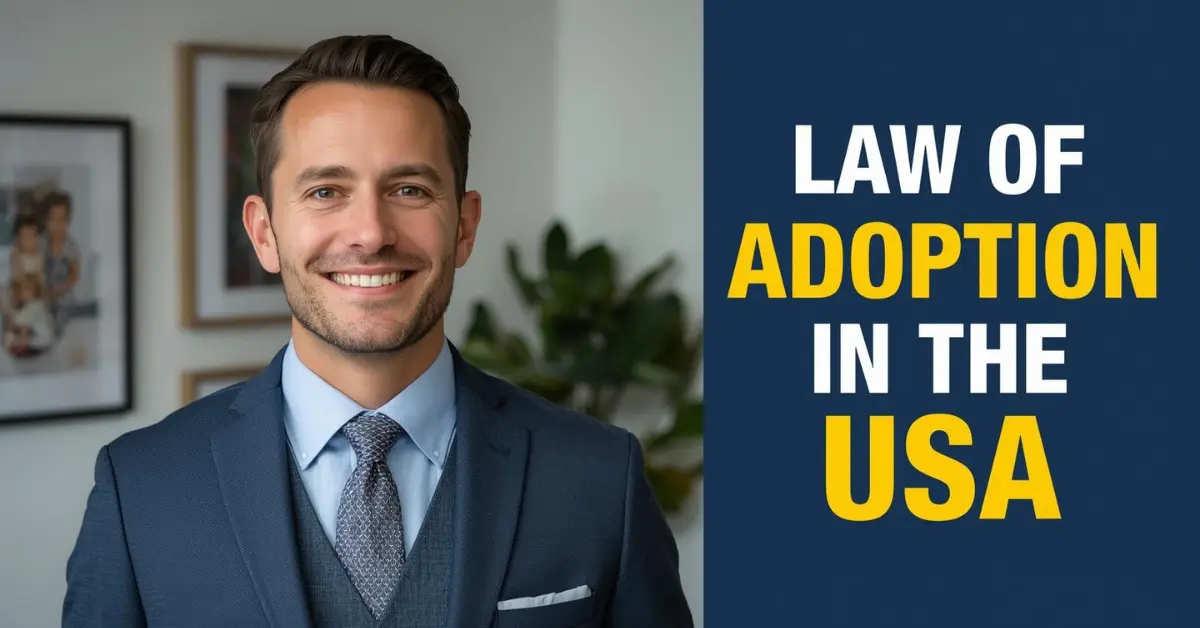Child Protective Services (CPS) plays a crucial role in ensuring the safety and well-being of children across the United States. The agency investigates allegations of abuse, neglect, or endangerment, aiming to protect vulnerable children from harm.
A CPS case can lead to a variety of outcomes, including interventions such as the removal of a child from the home or recommendations for family services. However, once a CPS case is closed, many parents or guardians are left wondering whether past cases can be used against them in the future.
A closed CPS case refers to an investigation that has reached its conclusion. This could happen if the allegations were unsubstantiated, if the family made the necessary improvements, or if the child was found to be in a safe environment.
While it may provide some relief for the involved parties, concerns remain regarding whether a closed CPS case might resurface in subsequent legal proceedings or investigations.
Understanding CPS Investigations and Closed Cases
When CPS receives a report of alleged child abuse or neglect, they are required to launch an investigation.
CPS investigations typically involve interviews with the child, parents, teachers, and other key individuals to determine whether the child is at risk.
The outcome of the investigation can vary. Some cases are substantiated, meaning there is evidence of abuse or neglect, while others may be unsubstantiated or even dismissed if no credible evidence is found.
A closed CPS case signifies that the investigation has been completed, and CPS is no longer actively involved with the family. Cases may close in various ways:
- Substantiated cases involve some form of intervention, such as family counseling, supervised visitations, or even removal of the child.
- Unsubstantiated cases indicate that CPS did not find enough evidence to support the allegations.
- Dismissed cases happen when CPS finds no credible basis for the claims made and no further action is necessary.
Can a Closed CPS Case Be Reopened?
Yes, a closed CPS case can be reopened under certain conditions. CPS has the authority to revisit a case if new information comes to light that raises concerns about the child’s safety.
New evidence—such as additional allegations of abuse or neglect—can lead to the reopening of a previously closed case.
Other factors that may trigger the reopening of a CPS case include:
- Recurrence of concerns, where similar issues that led to the original investigation arise again.
- Changes in circumstances, such as a change in the household, might affect the child’s safety.
- Community reports from individuals who suspect the child may still be in danger.
- A child’s disclosure of new information related to past abuse or neglect can also prompt CPS to reevaluate the situation.
Factors That May Reopen a Case
Several factors could influence CPS’s decision to reopen a closed case:
- New Evidence
The discovery of fresh information or additional reports about a child’s welfare can lead to the reopening of a case.
- Recurrence of Concerns
If the issues that initially triggered CPS involvement resurface, the agency may initiate another investigation.
- Changes in Circumstances
Major changes in a family’s living situation, such as a new partner or a move to a different state, could spark renewed concerns.
- Community Reports
Neighbors, teachers, or other community members who witness potential signs of abuse may file reports leading to a reopening of the case.
- Child’s Disclosure
If a child comes forward with information suggesting ongoing or past harm, CPS might decide to investigate further.
Future CPS Proceedings May Use Closed Cases
A closed CPS case does not simply disappear from the record. In fact, there are several scenarios where the details of a past case might be brought up:
- Subsequent CPS Investigations
If CPS opens a new case regarding the same family, information from the closed case might be used to assess risk factors and patterns of behavior.
- Custody Disputes
Family court judges may consider previous CPS involvement when determining the best interests of the child in custody cases.
- Adoption and Foster Care Applications
Individuals applying to adopt or foster children may have their background checked for past CPS cases, which could influence the decision.
- Employment in Sensitive Sectors
People applying for jobs in childcare, healthcare, or education may be subject to background checks that include past CPS cases, especially in sectors where child safety is paramount.
Legal and Social Implications of Closed CPS Cases
Closed CPS cases can have wide-ranging consequences, both legally and socially:
- Legal Proceedings
A closed CPS case might be referenced in future court cases, especially in family law disputes like custody or parental rights termination.
- Background Checks
Employers in fields involving children or vulnerable populations often conduct thorough background checks. A history of CPS involvement could be a red flag.
- Social Stigma
Families with past CPS involvement may face social stigma, as the perception of neglect or abuse can linger even after the case is closed.
- Family Dynamics
The emotional toll of a CPS case can create long-lasting rifts within families, impacting relationships between parents, children, and extended family members.
- Parental Rights and Responsibilities
Parents with a history of substantiated CPS cases may face restrictions on their parental rights, including visitation or custody limitations.
Using Closed CPS Cases in New Investigations
CPS may reference information from a closed case when conducting a new investigation. Even though the case is no longer active, the details may provide valuable insights into the family’s history.
For example, if there is a pattern of behavior that suggests a continuing risk to the child, CPS might use the closed case to inform their current investigation.
In some legal proceedings, such as custody battles or termination of parental rights, courts might allow evidence from a closed CPS case to be presented. This could be particularly relevant if the previous investigation involved substantiated abuse or neglect.
In these situations, the court may view the history of CPS involvement as a pattern of behavior that influences the current assessment of parental fitness and child safety.
Legal Protections and Rights
When it comes to Child Protective Services (CPS), many parents breathe a sigh of relief when a case is closed.
However, questions linger about whether a closed CPS case can be used against them in the future, especially when they’ve relocated to a different state or are dealing with new circumstances.
In the United States, CPS is a government agency that works to ensure the safety and welfare of children. A closed CPS case indicates that the investigation has ended, and either the allegations were found to be unsubstantiated or the issue was resolved.
However, the lingering concern remains: Can a closed case be reopened or referenced in the future? Yes, in some cases, it can, depending on the circumstances.
Rights of Individuals Concerning Closed CPS Cases
Parents and caregivers have specific legal rights when it comes to CPS investigations. Once a case is closed, it typically cannot be reopened unless there is new evidence or concerns regarding the child’s welfare. However, past case history might still be referenced if new allegations arise.
The primary concern for parents is ensuring that any unsubstantiated claims from a past case don’t follow them and aren’t used against them in future legal disputes.
Although a closed case usually remains sealed, there are some exceptions where CPS may use the information as a background reference to build a case, particularly if patterns of concern arise.
Can a Closed Case Be Used Against You If You’ve Moved States?
If you’ve moved to a different state, it doesn’t mean that your past CPS case is erased. Most states within the U.S. share CPS records as part of national databases.
So, even if you’ve relocated, a closed CPS case can potentially be accessed in your new state if similar concerns arise regarding your child’s safety.
However, state laws vary on how and when a closed case can be used. In some states, CPS agencies may only reference a closed case if the new allegations directly connect to previous concerns.
This situation is more complex when moving between states with different jurisdictional policies on child protection.
For example, if the closed case involved concerns that were fully resolved and no significant risk was found, the chances of that case being used against you are significantly lower than if the case was closed at high risk.
How to Protect Yourself Legally if a Closed CPS Case Is Being Referenced
If you find yourself in a situation where a closed CPS case is being referenced, it’s important to protect yourself legally. The actions you should do are as follows:
- Know Your Rights
Understanding your parental rights is the first step. A closed case doesn’t necessarily mean it will remain irrelevant forever, so familiarize yourself with state-specific child welfare laws.
- Maintain Documentation
Always keep thorough documentation related to your CPS case. This includes all reports, letters, court filings, and evidence that prove the case was resolved. If possible, obtain official records that show the allegations were either dismissed or unsubstantiated.
- Seek Legal Advice
Consulting an attorney is essential, especially if CPS references a closed case against you in a new investigation. An experienced family law attorney can help navigate the complexities of interstate legal issues and determine whether the closed case should be admissible in the current situation.
- Address Underlying Issues
If your closed case was related to issues like substance abuse or neglect, addressing those concerns proactively can help ensure that CPS has no grounds to reopen or reference the old case.
Differences in Canadian Child Protection Systems
While this article focuses on the United States, it’s worth noting that Canada operates under a different child protection framework. In Canada, child protection services vary by province, and the way closed cases are treated can differ significantly from the U.S.
Similarities and Differences in How Closed Cases Are Treated
In both countries, child protection agencies aim to ensure children’s safety, but there are variations in how long case records are kept and whether they can be referenced in future cases.
In Canada, CPS-like agencies may have different rules on record retention and may not always have access to cases from other provinces unless the child is at imminent risk.
Despite these differences, the core function of these agencies remains the same: child welfare is prioritized above all, and if there are new allegations, past cases might resurface as supporting evidence.
Guarding Against the Application of a Closed CPS Case
Whether you’re in the USA or Canada, protecting yourself against a closed CPS case requires proactive measures. Here are the key ways you can ensure your legal rights remain intact.
Know Your Rights
Understanding your legal rights is crucial. Closed cases can be cited in some circumstances, but only if there are justified concerns.
Staying informed about your state’s child protection laws ensures you are not blindsided by outdated or irrelevant allegations.
Maintain Documentation
One of the best ways to protect yourself is to have comprehensive records from the closed case. If CPS tries to reference an old case, having detailed documentation showing that the case was resolved can help prevent the use of the case against you.
Seek Legal Advice
Always seek legal advice if a closed case is being referenced in a new investigation. An attorney familiar with CPS cases and family law can provide invaluable guidance.
Address Underlying Issues
If there were underlying issues in the closed case, such as addiction, mental health concerns, or neglect, take steps to address these proactively. It will provide you with a stronger defense should the case be referenced in the future.
Maintain Positive Relationships
Fostering a positive relationship with your child and demonstrating good parenting practices can prevent future involvement from CPS. Courts and CPS favor parents who take active steps to ensure their child’s well-being.
Focus on Child Well-being
The child’s health should always come first. Keeping children safe, healthy, and emotionally supported will reduce the likelihood of CPS intervention in the future.
Stay Informed
Lastly, staying up to date with changes in family law and CPS policies is vital. New regulations can affect how closed cases are handled, especially across state or provincial lines.
State-Specific Considerations
Can a Closed CPS Case Be Used Against You in Texas?
Texas has its own specific procedures when dealing with CPS cases. Once a CPS case is closed, it means that the investigation has been completed, and no further action is expected.
However, in certain circumstances, a closed CPS case can indeed be referenced in future investigations or legal proceedings.
For instance, if CPS opens a new case involving the same family or child, the details of the closed case may be brought up, mainly if there are ongoing concerns about the child’s safety.
In Texas, CPS cases are not automatically sealed or erased upon closure. They remain part of the individual’s case history and can be accessed if necessary. In fact, Texas law allows CPS to use past cases as a reference, especially when evaluating patterns of behavior or risk.
It is also worth noting that under the Texas Family Code, previous involvement with CPS can be cited in court when determining child custody, guardianship, or other family law matters.
Are CPS Cases Public Record in Texas?
One critical issue for individuals in Texas is the accessibility of CPS records. In general, CPS cases are not considered public record. This means that unless there is a court order, the details of a CPS investigation—whether it’s open or closed—remain confidential.
Only individuals directly involved, such as the parents, attorneys, or certain authorized agencies, have access to the case files. This confidentiality ensures that the privacy of both the child and the family is protected.
However, in cases where there is a significant public interest or where criminal charges are involved, the records may be opened for review. Furthermore, certain entities, such as future employers conducting background checks, may have limited access to CPS case information if it pertains to child safety.
How much time does a Texas CPS case remain open?
In Texas, the duration of a CPS case can vary depending on the circumstances of the investigation. Typically, a CPS case stays open for up to 90 days, during which the caseworker conducts the necessary assessments and gathers evidence.
However, this timeline may be extended if more time is needed to ensure the child’s safety or if there is a need for court intervention.
In cases where the risk of harm to the child is low, the case may be closed within a shorter timeframe, such as 30 days.
On the other hand, more complicated cases, especially those involving severe allegations of abuse or neglect, may take several months or even years to resolve. Court-mandated services, such as counseling or substance abuse programs, may also prolong the closure of a CPS case.
What Can and Cannot CPS Do in New York?
In New York, CPS operates under different state laws, though the general principles are similar to those in Texas.
CPS has the authority to investigate claims of child abuse or neglect and take steps to ensure the child’s safety. However, there are specific limitations to what CPS can and cannot do, especially concerning closed cases.
While CPS can refer to closed cases during new investigations, they cannot take action solely based on a past closed case unless there is new evidence or ongoing concerns.
Additionally, the New York State Social Services Law mandates that CPS must close cases where no evidence of abuse or neglect is found within the prescribed timeframe. Once a case is closed, CPS cannot legally intervene in the family’s life unless new allegations arise.
However, it is important to note that in family court, prior CPS involvement can still be cited in determining custody or visitation rights. A history of CPS cases, even if closed, may influence the judge’s decision if it suggests a pattern of unsafe behavior or neglect.
Conclusion
Across the United States, CPS (Child Protective Services) handling of closed cases varies by state, but general practices are consistent. Once closed, a case typically remains closed unless new allegations of abuse arise or previously unavailable evidence comes to light.
However, past cases may be referenced in future investigations, mainly to show patterns of behavior or risk.
For example, in Texas, CPS records are private, but closed cases can still be referenced in child custody proceedings. Similarly, in New York, closed cases may be used in family court when relevant.
For most families, closing a CPS case is a relief. Still, families should understand their rights and the potential for past cases to be considered in new investigations. It’s advisable to consult a lawyer if there are concerns about how a closed case may affect future legal matters.




